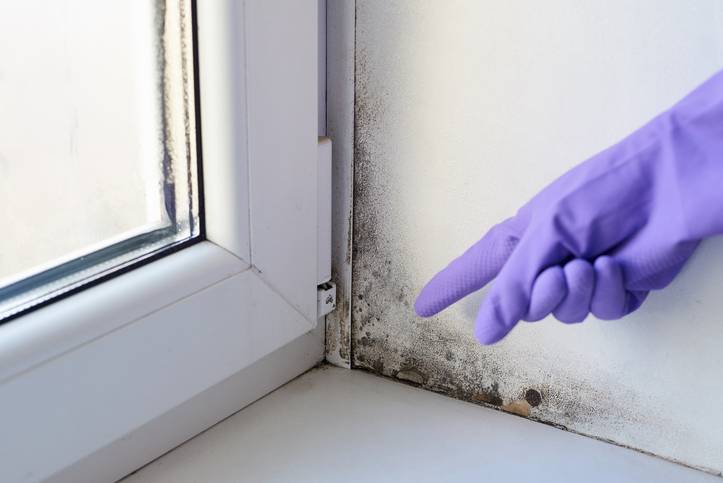Mould is a type of fungus which can cause health issues such as a runny or blocked nose, respiratory issues and allergic reactions. It loves living in areas with moisture such as bathrooms, kitchens and basements and spreads rapidly if not dealt with promptly. If left untreated it can also cause significant damage to a property.
How prevalent is the issue of mould in New Zealand rental properties?
According to a survey conducted by Stuff in Nov 2022 out of 6,500 respondents 35% reported having some mould in their home and of those 8% said they had patches of mould growing. While the survey didn’t specify whether these homes were rentals or owner occupied, it clearly indicates that mould is a significant problem across New Zealand properties.
So who’s responsible for mould, the tenant or the landlord?
There is a joint responsibility for landlords and tenants to deal with mould in rental properties. Landlords are required to provide premises that are not prone to mould. If the property consistently experiences mould issues the landlord has a responsibility to address the issue and find a solution.
Tenants have a responsibility to keep the property well aired and ventilated and to remove mould straight away and also have an obligation to let their landlord know if there is an issue with mould in the property.
In a tribunal order from 2002 (Warwick Todd Ltd vs Tapper TT1381/02) the adjudicator summarised the responsibility of landlords and tenants well by saying:
‘A tenant must also tell the landlord where there is a mould problem so that the necessary action can be taken. The landlord is also required to provide premises that are not prone to mould. If the premises have an inherent problem, such as bad construction or water lying under the premises, the landlord has the responsibility to remedy the fault.’
Ways to prevent condensation which can turn to mould
It’s important to move moisture laden air out of the house every day. If you don’t, when the temperature drops, the moisture condenses on the coldest surfaces (usually windows).
Here’s some tips to help prevent the build up of condensation:
- When you get up in the morning open the windows a bit, dry the windowsills if there is a buildup of water on them (important to do or else the water just goes back into the air) and then just before leaving close them.
- In the evening put on some heating and have some small heaters in the bedroom to help dry any moisture that is in the air.
- Dry clothes outdoors: Avoid drying clothes indoors, especially during the colder months. Moisture from wet clothes contributes greatly to indoor humidity and condensation. It is preferable whenever possible to use an outdoor area to dry clothes. However, if you have no choice but to dry clothes inside be sure to leave some windows open or put on a dehumidifier.
- Use extractor fans in bathroom and kitchens. Use them during and after cooking or showering to remove excess humidity from the air.
- Keep curtains open during the day which allows the rooms to warm with sunlight.
Renthub’s team ensure our tenants are informed about their responsibilities and how to prevent mould. If you are having an issue with mould in your property get in touch.
Call us on 09 6302655 or email us on office@renthub.nz.



